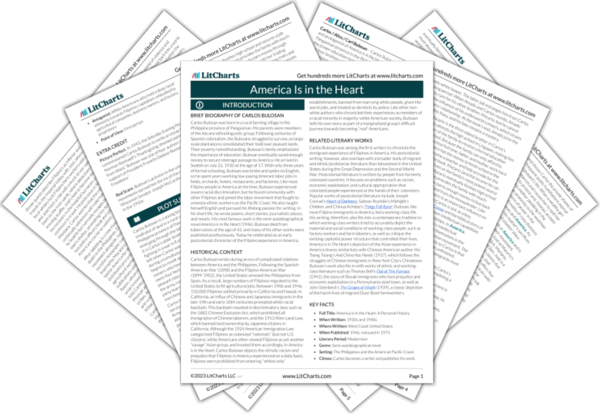Previous
Chapter 13
|
Previous
Chapter 13
|
America Is in the Heart: Chapter 14 Summary & Analysis |
Next
Chapter 15
|


Upgrade to unlock the analysis and theme tracking for all of America Is in the HeartAmerica Is in the Heart!
Get LitCharts A+